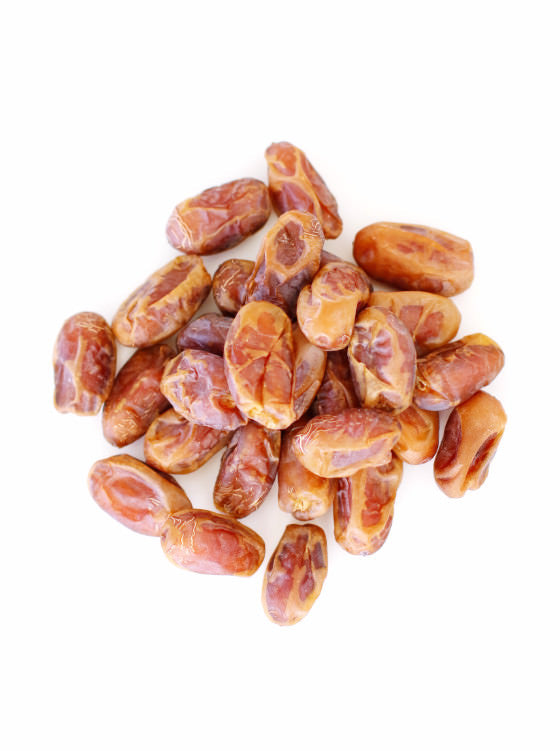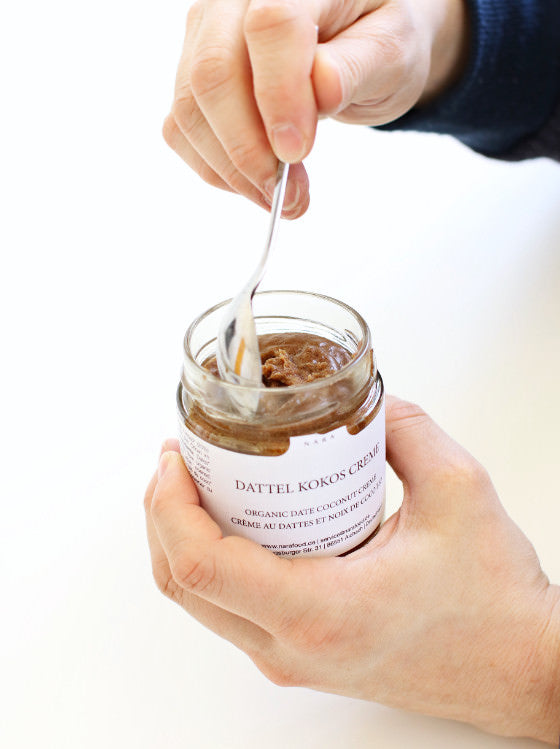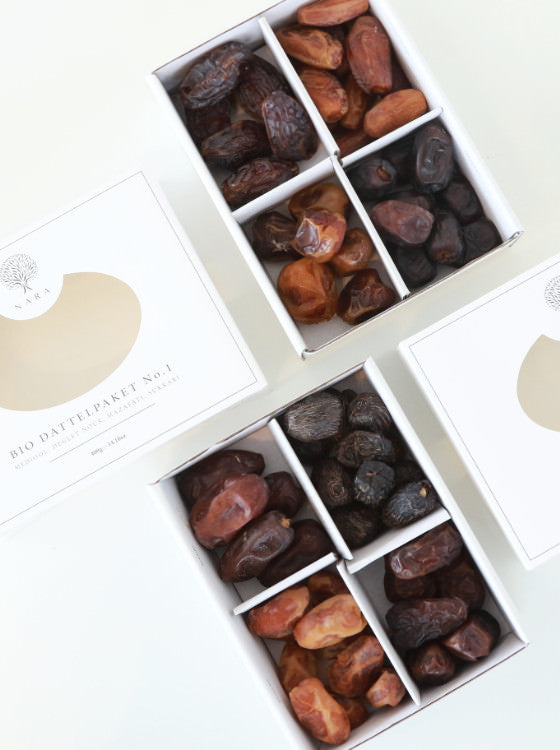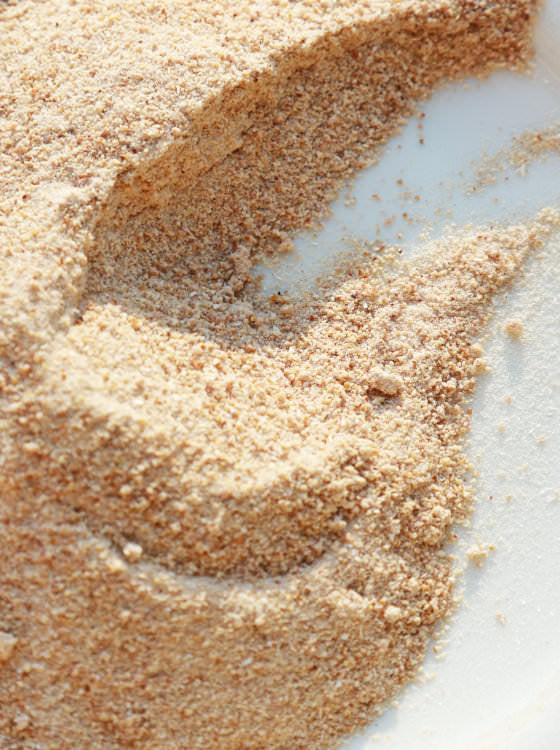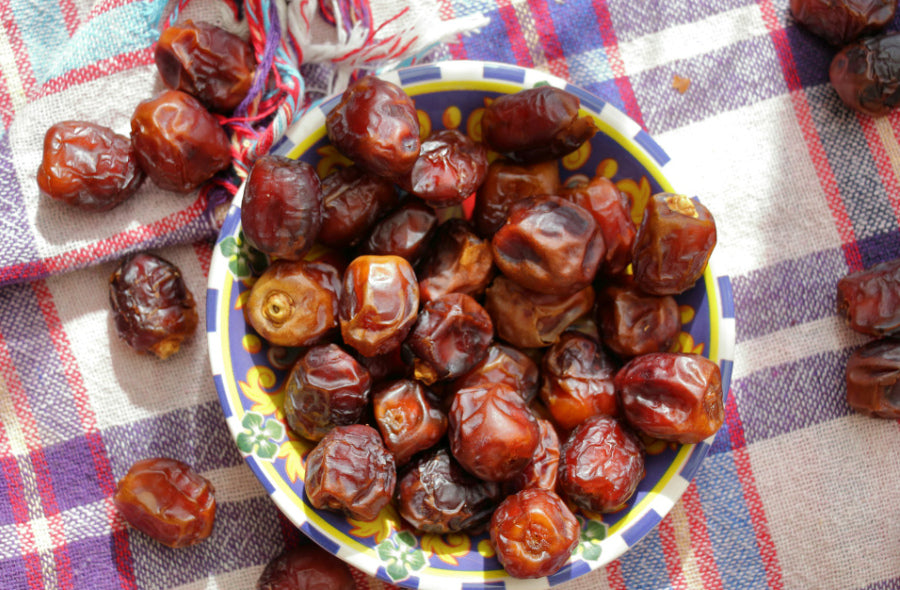Dates & carbohydrates: everything you need to know
Dates are little energy bombs - sweet, versatile and have been an integral part of many cuisines for centuries. But what about the carbohydrate content of dates? After all, carbohydrates are considered our body's most important source of energy, but depending on the quantity and type, they can also be viewed critically.
In this article, you will find out how many carbohydrates different types of dates really contain and what role they can play in different diets.
What exactly are carbohydrates?
When we talk about carbohydrates, many people immediately think of pasta, bread or potatoes. However, fruit is also an important source of carbohydrates. Basically, carbohydrates are our body's preferred source of energy. A distinction is made between
- Simple carbohydrates such asglucose or fructose, which are quickly absorbed into the bloodstream and provide quick energy
- Complex carbohydrates in cereals or pulses, which are metabolized more slowly and keep you full for longer.
Dates are one of the fruits with a high proportion of simple carbohydrates.
Energy check: from fresh fruit to dried fruit and syrup
How many carbohydrates are in dried vs. fresh dates?
On average, dried dates contain around 60 to 75 grams of carbohydrates per 100 grams. For the most part, we find natural sugars such as glucose and fructose in dates - these carbohydrates also make up the majority of the calories in dates. In contrast, fresh dates are significantly lower , with around 30 to 35 grams of carbohydrates per 100 grams, as their higher water content reduces the nutrient content proportionally.
By comparison, an apple has around 12 grams of carbohydrates per 100 grams and a banana around 20 grams. So it's no wonder that dates provide a natural energy boost and are popular in sports bags or cereal bowls.

1 date - different varieties: carbohydrates per piece
Not all dates are the same: Depending on the variety, they differ in size, consistency and also in carbohydrate content per piece. While Medjool is a large, juicy variety with a particularly high carbohydrate content, smaller varieties such as Deglet Nour or Ajwa have a lower carbohydrate value per piece.
Here is an overview of selected varieties of dried dates at NaraFood and their carbohydrate content per piece and per 100 g:
- Ajwa: 5-7 g per piece (approx. 56 g KH per 100 g)
- Deglet Nour: 4-6 g per piece (approx. 66 g KH per 100 g)
- Khidri: 8-11 g per piece (approx. 80 g KH per 100 g)
- Kholas: 7-10 g per piece (approx. 80 g KH per 100 g)
- Mazafati: 5-6 g per piece (approx. 44 g KH per 100 g)
- Medjool: 14-19 g per piece (approx. 71 g KH per 100 g)
- Segai: 7-9 g per piece (approx. 80 g KH per 100 g)
- Sukkari: 5-7 g per piece (approx. 56 g KH per 100 g)
- Wanan: 8-10 g per piece (approx. 68 g KH per 100 g)
Carbohydrates in date products
Not only the whole fruit, but also products made from dates are popular sugar alternatives. In comparison, they provide more nutrients than white sugar, but still contain a lot of carbohydrates. If you use these products as a sweetener, you should therefore pay attention to the quantity despite the additional nutrients:
- Date syrup: approx. 70-75 g KH per 100 g
- Date paste: approx. 65-70 g KH per 100 g
- Date puree: approx. 74 g KH per 100 g
- Date sugar: approx. 95 g KH per 100 g
Dates in the diet: Are the carbohydrates healthy?
Dates contain a lot of carbohydrates, mainly in the form of natural sugar. However, unlike refined sugar, they also provide fiber, minerals and antioxidants. This combination can reduce the rise in blood sugar after consumption compared to industrial sugar - this can be particularly interesting for people who have to watch their blood sugar levels for certain reasons. This means that although dates are high in energy, they can be a better choice than traditional sweets .

Glycaemic index and sugar intake
With a GI of around 40 to 55, dates are in the medium range. Unlike highly sugared sweets or white bread, their sugars do not enter the bloodstream as quickly, as fiber slows down the metabolism.
Keto, vegan & co.: How do dates fit in with different diets?
Compared to other fruits, dates are rich in carbohydrates and natural sugar - this makes them suitable for some diets and less suitable for others.
- Low-carb and keto diets: Due to their high carbohydrate content, dates hardly fit into the concept here, as just a few fruits can exceed the daily limit.
- Plant-based diets: In vegetarian or vegan cuisine, dates are a popular source of energy as an alternative to honey, providing additional fiber, minerals and antioxidants.
- Sports nutrition: Dates are practical for athletes because their carbohydrates provide quickly available energy.
And how are dates compatible with diabetes?
Despite their high sugar content, dates do not automatically have to be taboo for people with diabetes. The decisive factor is the portion: small quantities can be a good option, for example combined with nuts or yoghurt. However, this should always be agreed with the doctor treating you, who will check the individual effect of the dates on your blood sugar.
Portion sizes and practical tips
Dates are sweet, healthy and practical - but also high in energy. Three to five fruits a day is a good guide to reap the benefits without overdoing the carbohydrate consumption. It is also worth using the fruit consciously when baking or in muesli - dates provide valuable nutrients as a sugar substitute.
Fancy one? At NaraFood you can buy a large selection of different dates - from carbohydrate-rich varieties such as khidri and kholas to ajwa and sukkari with a lower carbohydrate content - so that you can integrate the fruit into your diet to suit your taste.
Enjoy it, your NaraFood team!

